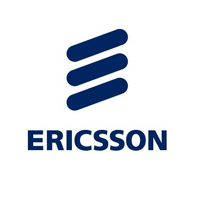NR-U Transforming 5G – Qualcomm Presentation.
Deliveringon the 5G vision
Where virtually everyone and everything is intelligently connected.
Extend 5G with unlicensed spectrum Using all spectrum types and bands
Licensed spectrum
Exclusive use
Over 40 bands globally for LTE, remains the industry’s top priority
Shared spectrum
New shared spectrum paradigms
Ex: 3.5 GHz USA, 3.7 GHz Germany
•Unlock more spectrum globally
•New markets and verticals
•New deployment scenarios
Unlicensed spectrum
Shared use
Ex: 5 GHz / 6 GHz / 60 GHz global
6 GHz brings new unlicensed bandwidth for Wi-Fi and 5G 1200 MHz of Spectrum A massive amount of new unlicensed spectrum is now available in the U.S. for Wi-Fi 6E and 5G First global cellular standard with both license-assisted and standalone use of unlicensed spectrum.
Rel-16 introduces NR in unlicensed spectrum – Unlicensed spectrum is combined with other licensed or shared spectrum as anchor Only unlicensed spectrum is used in SA. Anchored NR-U to boost mobile network performance. Manages congestion and mobility Delivers a consistent 5G experience
Standalone NR-U Makes 5G private networks easy to deploy.
- Fair coexistence with Wi-Fi and LTE-LAA
- Simple network deployment with virtualized RAN and cloud core
- From private networks initially to neutral hosts and mobility offload
- Deploy networks and scale freely across markets with unlicensed spectrum
5G private networks in NR-U brings benefits to industrial IoT.
Dedicated local network, dedicated resources, independently managed
Secure Cellular grade security, sensitive data stays on-premise.
Optimized Tailored performance for local applications, e.g., low latency, QoS
Coverage, capacity, and, mobility Outdoor/indoor, high data speeds, seamless handovers, public network fallback
Reliability and precise timing Industrial grade reliability, latency and synchronization (eURLLC3and TSN4)
Interoperability Global standard, vast ecosystem, future proof with rich 5G roadmap
NR-U supports URLLC with synchronized sharing in controlled environments.
Today, unlicensed spectrumoffers unpredictable QoS
In controlled environments, QoS becomes more predictable
Synchronized sharing enables CoMPand more predictable QoS
1. Listen before talk (LBT) with load based equipment rule (LBE), such as CSMA/CA (Carrier Sense Multiple Access/Collision Avoidance); 2. Frame Based Equipment
Regular LBT1using random access results in unpredictable Quality of Service (QoS), e.g., latencies
No interference from other networks, but still random access within the private network
Today’s regulation includes FBE2, which supports predictable QoS and CoMP—a key technology for URLLC
NR-U Transforming 5G


